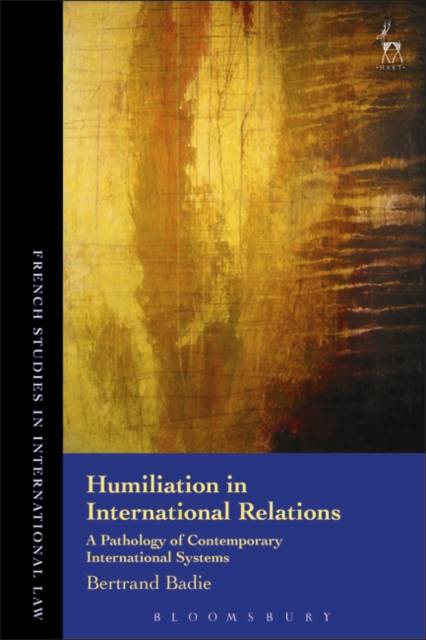
En raison d'une grêve chez bpost, votre commande pourrait être retardée. Vous avez besoin d’un livre rapidement ? Nos magasins vous accueillent à bras ouverts !
- Retrait gratuit dans votre magasin Club
- 7.000.000 titres dans notre catalogue
- Payer en toute sécurité
- Toujours un magasin près de chez vous
En raison de la grêve chez bpost, votre commande pourrait être retardée. Vous avez besoin d’un livre rapidement ? Nos magasins vous accueillent à bras ouverts !
- Retrait gratuit dans votre magasin Club
- 7.000.0000 titres dans notre catalogue
- Payer en toute sécurité
- Toujours un magasin près de chez vous
Humiliation in International Relations
A Pathology of Contemporary International Systems
Bertrand Badie
220,45 €
+ 440 points
Format
Description
In international relations (IR), some states often deny the legal status of others, stigmatising their practices or even their culture. Such acts of deliberate humiliation at the diplomatic level are common occurrences in modern diplomacy. In the period following the breakup of the famous 'Concert of Europe', many kinds of club-based diplomacy have been tried, all falling short of anything like inclusive multilateralism. Examples of this effort include the G7, G8, G20 and even the P5. Such 'contact groups' are put forward as if they were actual ruling institutions, endowed with the power to exclude and marginalise.
Today, the effect of such acts of humiliation is to reveal the international system's limits and its lack of diplomatic effectiveness. The use of humiliation as a regular diplomatic action steadily erodes the power of the international system. These actions appear to be the result of a botched mixture of a colonial past, a failed decolonisation, a mistaken vision of globalisation and a very dangerous post-bipolar reconstruction. Although this book primarily takes a social psychology approach to IR, it also mobilizes the resources of the French sociological tradition, mainly inspired by Emile Durkheim. It is translated from Le temps des humiliés. Pathologie des relations internationales (Paris, Odile Jacob, 2014).Spécifications
Parties prenantes
- Auteur(s) :
- Editeur:
Contenu
- Nombre de pages :
- 184
- Langue:
- Anglais
- Collection :
- Tome:
- n° 6
Caractéristiques
- EAN:
- 9781782256199
- Date de parution :
- 27-07-17
- Format:
- Livre relié
- Format numérique:
- Genaaid
- Dimensions :
- 157 mm x 236 mm
- Poids :
- 453 g

Les avis
Nous publions uniquement les avis qui respectent les conditions requises. Consultez nos conditions pour les avis.






